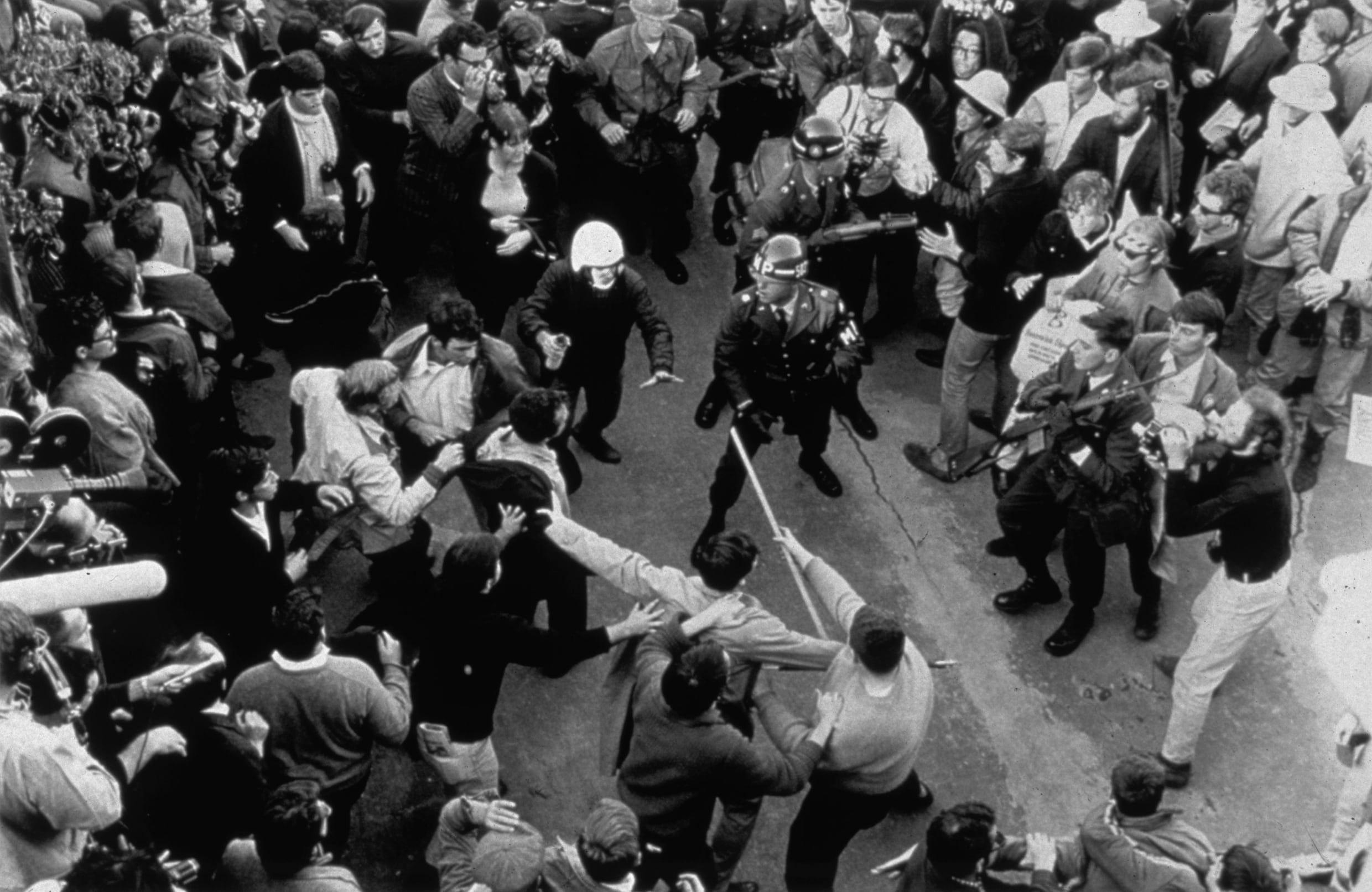“When movements are suppressed, they actually boil harder,” Rachel, a nineteen-year-old student, told NBC News. Rachel studies at Columbia University in New York and did not want to give her full name for fear of reprisals.
Students set up a tent camp there last week to protest against the war in Gaza. They demanded that their registration fees not be used to support Israeli companies. But the university’s rector, Nemat ‘Minouche’ Shafik, asked police last week to clear the camp.
That further sharpened the students’ anger. The last time the chancellor of Columbia University called for police help, Rachel told NBC, was in 1968, when students there demonstrated against the Vietnam War.
Last week’s performance set off a wave of solidarity. Students from New York, in the Northeast, to California, in the Southwest, expressed their dismay. The images of fully armed officers driving away students are very reminiscent of what happened on American campuses more than fifty years ago.
In a month, it will be 54 years since the ‘Kent State Massacre’ took place. Students then threw rocks at National Guard troops as they evacuated Kent University in Ohio. The Guard opened fire, killing four students. The tragedy caused a major shock in the United States. Even now, Republican Speaker of the House of Representatives Mike Johnson has threatened to send the National Guard to universities.
Conscription
The scenes of the anti-war demonstrations are perhaps better known to us through the film Forrest Gump (1994), in which Gump goes to fight in Vietnam and his girlfriend Jenny joins the hippie movement as a student. The film takes a comical approach to the – sometimes very bitter – contradictions of that time.
Of course, the differences with today are very large. The US supports Israel – with weapons and ammunition – but does not send troops to Gaza. The students who protested against the war in Vietnam had a chance of being drafted into the army themselves. The war in Vietnam was therefore not as far from home for the Americans as the war in Gaza.

“But there was a lot of outrage about what happened in Vietnam,” says Kristiaan Versluys, emeritus professor at Ghent University and America expert. “Especially about the use of poison officer orange. It was a war that caused many casualties. Vietnam was the first ‘televised’ war embedded reporters. Also in Gaza, seeing the misery visually is the trigger.”
And there are still parallels between the Gaza protests now and those against Vietnam then. In both cases it concerns a powerful army wreaking havoc from the air on a small, underdeveloped non-white country. Moreover, students also want their university to show its colours, just like then.
“This protest is also about the interconnectedness of American universities with the Israeli military-industrial complex,” says Frank Albers, writer, philosopher and lecturer in American history and literature at the University of Antwerp. “The universities are not transparent about this. The students therefore want more openness. It costs a lot of money to enroll at an American university. As a student you want to know whether your money is being used for morally defensible research. If universities have countries as clients that unleash terrible violence, then you would rather have nothing to do with that.”

House-garden-tree
Yet Albers sees many differences compared to half a century ago. “It is not the case that society as a whole is aware of it,” he believes. “The 1968 protests were a symptom of a much larger protest movement that questioned not only the Vietnam War but also the American way of life. Young people protested against a conformist lifestyle, against capitalism. They questioned the American cultural ideal: the white family, small house, garden and tree. Students also stood up for the civil rights movement and supported Martin Luther King. The protests now are not part of a larger mass cultural movement.”
The question is what the consequences could be for the American presidential elections. In 1968, the protests soured then-Democratic presidential candidate Hubert Humphrey, who supported government policy. He lost against Richard Nixon. Is a similar scenario looming for Joe Biden? “Biden cannot do good for anyone,” says Versluys. “According to one, he does too little for Israel, according to the other, too much. This is one for him lose-lose-situation.”
These protests on campuses mainly play directly into the hands of Donald Trump, says Versluys. Trump said earlier this week that he wants to sweep through all rebellious universities if he is elected. Versluys: “This is justified Fressen for him: ‘the radical left disrupts public life’. That is the terrible irony of the matter: the protests may have little impact on the situation in Gaza, but who will win is Trump.”

Tags: Gaza protests American universities reminiscent Vietnam War
-







